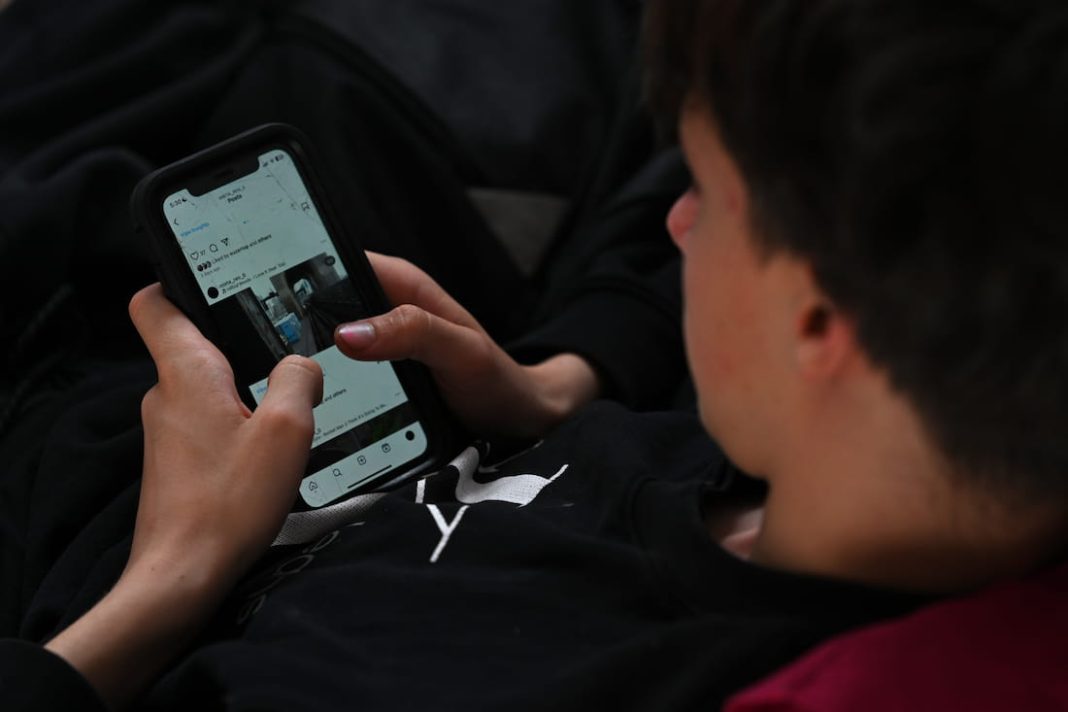Children shouldn’t be banned from social media until a wider review into online safety is released, an inquiry has been told.
A quickfire, three-hour hearing into the proposed ban wrapped up in Canberra on Monday as the government aims to pass the new law later this week.
Mental health experts clashed in an at-times fiery hearing, debating the utility of the laws that would see under 16s barred from using Facebook, X, Instagram and TikTok.
The world-first ban is supported by both Australia’s major parties, but, parties were given only 24 hours to make written submissions to the inquiry before Monday’s hearings.
Greens senator Sarah Hanson-Young labelled the timeframe “inadequate” and a “joke”, grilling department officials on why the laws weren’t being considered in the context of a wider review of the online space.
That review of the Online Safety Act was given to the communications minister in November, but has not been tabled.
“This is why this is such a joke, a piece of legislation is being rammed through that relates directly to the issues that were raised in this review …. you’re asking us to ram through a piece of legislation without any evidence,” Senator Hanson-Young said.
The Digital Industry Group’s Jennifer Duxbury agreed and described the bill as “flawed”.
“There is a lot of work going on here, and parliament needs to have the opportunity to actually look at how all of these different pieces of the puzzle fit together before making a judgement on this bill,” she said.
“At the moment it is really a tin with a label on it, with all of the details to be worked out further down the track.”
Human rights groups have also argued the one-day window for submissions was not a true consultation period.
A panel of experts disagreed on the effectiveness of a ban, with Murdoch Children’s Research Institute’s Susan Sawyer suggesting harm caused online had been exaggerated.
“The evidence that we have in terms of the scale of the problem is that it’s not nearly as great as what many people would believe,” she told parliament.
Liberal senator Maria Kovacic described Professor Sawyer’s comments “disturbing” and accused her of minimising harms found online.
Much of the debate centred around how social media can be used as a mental health support network.
Headspace’s Nicola Palfrey, who acknowledged the internet contained much distressing material, said her organisation was concerned by the ban because it would stop young people from learning how to access mental health support.
“(Kids are) seeking out information with regards to mental health and wellbeing, and definitely with regards to connection, particularly for those young people that were at risk of being disenfranchised,” she told parliament.
Clinical psychologist Danielle Einstein said she saw no positives to social media use by children whatsoever and said research that indicated it could be used as a suicide-prevention tool was “wrong”.
Earlier, eSafety commissioner Julie Inman Grant said children must be protected online, but still need to communicate via the internet.
“We also need to make sure that particularly vulnerable and marginalised kids still have a way to connect and to create and explore,” she told ABC Radio on Monday.
Social media companies would be fined up to $50 million for breaches of the law if they do not take reasonable steps to prevent young people from having an account.
The laws will come into effect a year from when they pass parliament.
Independent senator David Pocock said social media harms needed to be addressed, but the laws had to be looked over properly.
“The major parties … are happy to forgo all scrutiny and just ram something through when, one, it’s in their self interest, or two, they can then hold that up going into an election saying ‘Well, at least we’ve done something’,” he said.
Lifeline 13 11 14
Kids Helpline 1800 55 1800 (for people aged 5 to 25)



